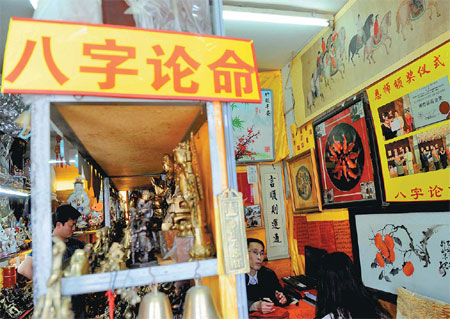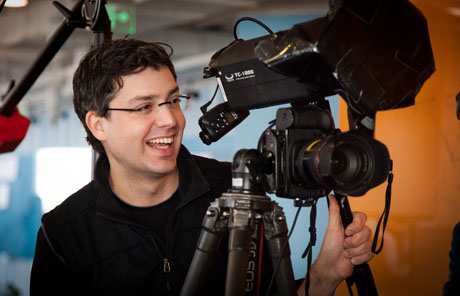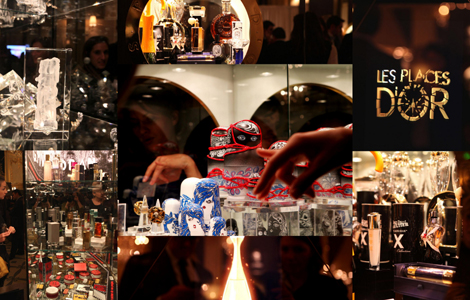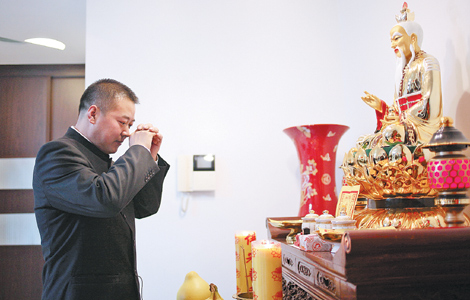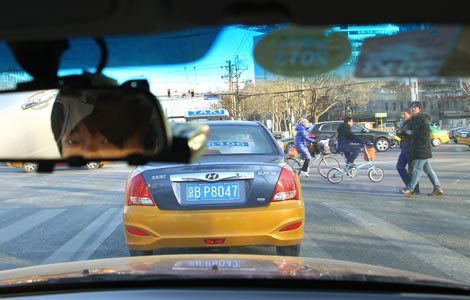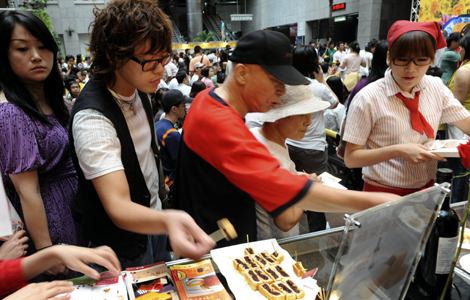Wealthy see their fate linked to feng shui
Updated: 2013-01-10 07:26
By Peng Yining and He Na (China Daily)
|
||||||||
Rich pickings
Forget about the shabby sidewalk stalls of feng shui experts, the ones fighting for space next to the psychics, palm readers and fortune tellers. Now the ancient art, believed to unlock riches, power and control of one's life, is targeting China's newly rich, and has become a "must have" for many high-end individuals.
Born in a village in Hebei province, Qi was influenced by his grandfather, also a "master", and has been interested in the mysterious and ancient art since he was a teenager.
In 1995, he founded his first consultancy in Hebei's Tangshan city, before expanding the business to Beijing in 2010.
The company's website provides a detailed breakdown of the price list: Naming newborn babies or changing existing names costs up to 38,885 yuan ($6,246); choosing the right time for a cesarean birth to ensure the child is born at a propitious moment costs 1,685 yuan to 8,885 yuan; the price for advising real estate agents, companies and the location of tombs ranges from 500 to 50,000 yuan.
Qi said that when he first started out, he charged just 10 yuan to name a newborn baby. "But now, too many people are asking for my help. I had to raise the price to limit the numbers," he said. "I do lower my prices for poor families, but those businesspeople make millions or even billions, so it would be ridiculous if they were to pay just a couple of hundred yuan for the service."
He said the most frequent inquiries from businesspeople include the decoration of offices and apartments to encourage positive developments, plus investment advice, the pros and cons of entering into partnership or working by oneself, and how to choose the right subordinates.
"I provide answers based on their names, their dates of birth and the feng shui arrangements in their immediate environment," explained Qi.
Running alongside the Lama Temple in Beijing is a 500-meter-long strip known as "The Street of Fortune Tellers", which has become a gathering place for the city's diviners, palm readers and feng shui masters. The sidewalks bristle with people hawking their services and "magic" accessories, including bracelets, necklaces and blessed figures of the Buddha.
However, unlike his peddling peers, Qi has eight employees. His office, situated close to Beijing's second ring road, faces south and stands in front of a river. In short, it's a textbook feng shui office location.
The office is decorated in strict accordance with the rules, and a statue of Lao Zi, the founder of Taoism, is enshrined in the main hall, surrounded by flickering candles. However, the front door faces a second door inside, an arrangement believed to bring bad luck. Qi solved the problem by hanging a crystal curtain between the doors.
The lower sections of the French windows are covered by opaque plastic film. According to feng shui principles, large, uncovered windows can result in the loss of money. A fish tank has been placed by the window for the same reason, to stop Qi's fortune from flowing away.
